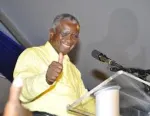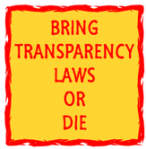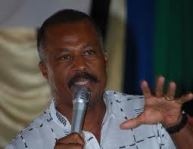Much has been said about our Royal Barbados Police Force (RBPF) in recent years. We admit that our RBPF has been a professional unit and for the most part distinguished itself from its counterparts in the region by staying away from any serious corrupt behaviour — the kind of behaviour which has tarnished police forces in Guyana, Jamaica and Trinidad. In Barbados, we have had concerns expressed about how our RPBF has extracted statements from individuals charged, the questionable ‘bed side manner’ practiced, but most of all we have had the most concern leveled at the physical environs which policemen have to perform in their jobs. The effort of our police is further compounded by a judiciary system which is still connected to the stone age.
The purpose of our article is not meant to ridicule the RPBF or by extension our court system. We want our readers and our authorities to reconcile the idea that there is a close relationship between economic prosperity, and law and order. We note that many of our Caribbean islands are exclusively dependent on tourism and foreign investment to drive their economies. The negative impact of out of control crime will impact our region negatively. The worrying point for the Caribbean region is that we are so small as a region, one ‘bad island’ will probably spoil the whole lot. External agencies routinely label the region as the Caribbean; some may even go as far as to lump us with South America.
We note that our new Attorney General, the Honourable Fruendel Stuart who has responsibility for the RPBF has been visiting our woefully inadequate facilities which our policemen have to use. We, however, hasten to add that most if not all of Minister Stuart’s predecessors would have done the same thing. We remember David Simmons who is our current Chief Justice doing a similar tour. The conditions of our police stations in 2008 and the lack of a modern infrastructure remains a major embarrassment. If anyone has a doubt visit any of the stations of your choice and feedback to BU. We recommend the Central and Boarded Hall stations.
Many Barbadians remain concern at recent events in Guyana where law and order seems to be under threat. There are worrying signs in Trinidad and Tobago, and Jamaica. In most of the islands one can make the argument that law and order is an issue which our leaders should tackle under a unified policy. At the regional level our leaders continue to say the politically correct things, yet a rapid decline in law and order continues in our region. New Prime Minister David Thompson and his counterpart Patrick Manning from Trinidad and Tobago issued a joint communiqué last week which addressed the importance of security to our region. Will we see a shift from the rhetoric this time around?
We were alarmed when we read Robert Buddan’s article, UWI lecturer at Mona in Jamaica, in the Jamaica Gleaner of 24 February 2008 which started as follows:
Jamaica’s murder rate increased by 17 per cent in 2007, to a level behind only the record year of 2005. The two most murderous years, in other words, were two of the last three years. Last year, 65 children, 146 women and 19 policemen were among those murdered. This year has started badly too. At the end of January, the murder rate remained alarming. No wonder the latest Gleaner/Johnson polls show an increasingly frustrated Jamaican population calling in even greater numbers for the death penalty. One of the strongest areas of consensus in Jamaica is that hanging must be resumed. Seventy-nine per cent felt this way in mid-January.
Mr Buddan’s article should be read against the backdrop of rising crime in our region and the threat which it continues to pose to our region which is dependent on tourism. Our leaders continue to fail their respective countries by not committing the required resources toward improving our judiciary system, security laws, introducing penal reform and last but not lease improving the physical infrastructure which our police forces have to operate.
Here is what the World Bank had to report on this matter in 2007:
MIAMI, May 3, 2007 (Reuters) – The tourism-dependent Caribbean may now have the world’s highest murder rate as a region, severely affecting potential economic growth, the World Bank and a U.N. agency said in a report on Thursday. Blaming most of the violent crime in countries like Jamaica and Trinidad and Tobago on the trafficking of Colombian cocaine to Europe and the United States, the report said the region’s homicide rate of 30 per 100,000 inhabitants a year was higher even than troubled southern and western Africa.
It acknowledged that murder statistics in small countries were often problematic because a relatively small number of incidents can result in high rates but said it was clear that homicides were a growing problem in the Caribbean. “While levels of crime and associated circumstances vary by country, the strongest explanation for the relatively high rates of crime and violence in the region — and their apparent rise in recent years — is narcotics trafficking,” said the report, jointly prepared by the World Bank and the U.N. Office on Drugs and Crime.
BU find it interesting that Barbados and many of our islands continue to call for the death penalty which many seem to think will solve the problem of growing crime in the region. Should we point out that Guyana and Trinidad practice the death penalty? What we need is to have cohesion at the regional level. This takes on importance now that we appear to have free movement of people in a CSME environment. Our immigration, police, customs and other security agencies must shed their parochial inhibitions and understand that we are all small fish swimming in the same small pond. When their is cohesion at the regional level only then will the domestic initiatives make sense.
We continue to be amazed that our leaders continue to fail the PEOPLE by regurgitating policies and programs which are doomed to fail if history is used as a barometer. They become elected and many of them leave public office fortified in the knowledge that their financial futures are secure. Our PEOPLE have been lulled into a false sense of security. The indicators are all around us that we are operating in troubling times. Our leaders must insure that economic policies are adequately implemented which address social cohesion. Many of our leaders now seem immerse in the economic side of the equation when governing.



















Our leaders dont seem to get it that these are important issues which will affect everybody. Why dont they understand? I dont find it so. They are get vote in and vote out. no change smae results, man!
Pingback: » Armed Robbery in Barbados - Saturday Afternoon Keltruth Corp.: News Blog of Keltruth Corp. - Miami, Florida, USA.
BU you are on the ball. check page 3a of todays SUN. The Amercian Embassy put a notice on their website about two attacks on tourists in Barbados. Those who want to listen let tem listen.
Pingback: How Much Armed Robbery Goes Unreported In Barbados? « Barbados Free Press
Apparently reports about the serious situations facing all of us in the Caribbean generate lacklustre interest.
But the “frivolous” clearly get droves of people to comment.
Perhaps the frivolous issues anaesthetize people’s consciences???
born and bred could it be a case that we are in denial?
The thought of our orderly and peaceful societies breaking down cannot be contemplated by most Barbadians. We are happy to comfort ourselves in the knowledge that we have always found a way to get it done.
We have examples of even the developed countries battling with societal ills of gigantic proportions, the difference is that they have the resources to throw at those problems.
Yes David that is correct.
However, all the $$$ that the developed countries are throwing at the societal ills are not helping either.
At the core of this is a belief that we can turn our backs on God, throw the Ten Commandments out of Schools and elsewhere, brainwash our youth with violence and crime via the media, do whatever “feels” good, be tolerant of others and we are going to end up being more “enlightened” human beings.
Well, it is quite obvious that that premise is not working.
What about the “Ancient Paths” as the Bible says. The good old ways worked but nobody even wants to consider those anymore.
As the old adage goes “if it ain’t broke, don’t fix it”. Well it wasn’t “broke”!!!!
One of the biggest criticisms of the throne speech is that it focussed on social policy rather than the economic growth strategy. And I sense that this is the DLP’s tendency. So I don’t necessarily agree with your criticism of today’s politicians. What say you David?
Leviticus our comment was general and more hinting to Prime Thompson about what we have come to expect. He has been in office for a short time and we obviously have to withhold judgement for the moment. You can’t expect that on the basis of a Throne Speech we can give Prime Thompson his papers?
It seems to us in the People’s Democratic Congress (PDC) that many BLP and DLP Government ministers, many judicial officers, court prosecutors and defence lawyers, substantial numbers of law enforcement officers and even social commentators over the years have entered into public discussion on issues related to law and order and crime and violence in Barbados, WITHOUT the great benefit of a unified, consensus and wholistic approach to dealing with these issues, or WITHOUT the massive benefit of modalities and methodologies for arriving even at such an approach. As a conequence, therefore, there is a correlationship between such huge deficiencies/deficits, and how some of the above persons in their respective professional duties treat to the environment and culture within which such issues, or even such cases, are dealt with or have to be dealt with, and the kinds of impacts such treatments have on the process of attaining any reasonable and national objectives that relate to the maintaining of a sound Barbadian law and order environment, and to the maintaining of relatively low levels of crime and violence in Barbados.
Take, for instance, Operation Road Order Maintenance, which was instituted soon after the present Commisioner of Police, Mr. Darwin Dotton, had entered into office. Its focus was on bringing greater discipline and stability to the Public Transportation Vehicle Sector vis-a-vis a more rigid enforcement by the police of the relevant Road Traffic laws and regulations. But, even though great portions of the public had supported it, did the Cabinet at the time discuss it before its implementation, given that it had very serious implications for workers, using means of public transport, getting to work on time, and therefore given that it had serious implications for inciting serious national production and productivity fallout? What were the views of judicial officers working within the Magistrates Courts on it, some of whom had to eventually deal with the substantial number of cases that arose from the implementation of this same program?
What has really become of it, now? Is there still too much rampant indiscipline and chaos among some portions of the Non-State Public Transportation Sector?
Another important case in point, was when the present Chief Justice, Sir David Simmons, was Attorney General of Barbados from 1994 to 2001. Then, he had felt the urgent need – some time before he had retired from the House of Assembly – to properly introduce, by way of the relevant legislative change/measures, stiffer penalties for gun related offences in Barbados, given that there was growing public concern, even public alarm, at the serious spikes in gun related crimes that were being seen in Barbados around that time. Therefore, the Representatives of the People had to respond, or so he thought; so, yes, he did go on to introduce some very serious mandatory penalties, including rather long custodial sentences, for such offences – which had the support of much of the public – but at that time did he, or the then BLP Government, know what were the views of the then judicial officers of the High Court of Barbados, on those penalties and esp. the views of those who were charged with managing the then lone and already very overcrowded adult penal institution – Glendiary Prisons. Did Sir David, at the time, forsee that, given the seperation of powers doctrine, he was somewhat encroaching on the inherent powers of judges to sentence, and thus on the independence of judges. Did he NOT realize at the point in time, too, of introducing such penalties that such would have led to serious disparities in judicial sentences relative to the fact that some convicts would have appeared to have got far harsher penalties for even gun and ammunition possession crimes than some other convicts would have got for even more serious crimes esp. ones like non-gun related murders, manslaughters, etc. in Barbados? Therefore, were there NOT efforts by the Chief Justice, Sir David, to remedy such disparities in sentences, recently? Are there still too many gun-related crimes?
Finally, PDC recognizes that there really has to be the evolution of a unified, consensus, and wholistic approach to law and order and crime and violence problems in Barbados by the relevant stakeholders of the country. Against this backdrop, too, that we wish to support the call of the People’s Empowerment Party for a National Consultation on Crime in Barbados.
PDC
David,
While there has been some movement on the physical facilities available for officers (Speightstown and Crab Hill Police stations amongst others) far too much still remains to be done.
Also of great concern is the level of pay for RBPF officers. An officer who is in financial need is an easier target for bribery. The terms and conditions of service need to be looked at with a degree of urgency.
Marginal
Here are a few suggestions for dealing with crime in Barbados.
1. Legalise the personal use of marijuana while at the same time educating people about it. Government should grow herb and manage its distribution. This will make it uneconomical to traffic and remove the criminal element. Profits from the sale of the drug should be put into social development and education programmes. I would estimate this would also save $100 million dollars of police and court time.
2. Control the use of alcohol by bringing in drink driving laws, limiting free drinks parties and drink promotions. Restrictions should also be placed on alcohol advertising and sale at events where children are present (like Bridgetown Market).
3. Stop locking up people for using hard drugs. It’s pointless and does nothing to deal with addiction. People caught with illegal drugs should be sent for treatment and then placed on five years’ probation where they would have to submit to regular drug testing.
4. Conduct a study investigating the role of drugs (including alcohol) use in crime. Conduct breathalyser and drug tests at every road accident and at every crime involving violence.
5. Improve the administration side of policing so police spend more time on the street or investigating crimes, and less time taking police statements.
6. Invest in technology. Speed cameras and traffic light cameras will do a better job controlling traffic offenses. Implement a ticketing system for many traffic offenses and combine fines with demerit points on the license. Cameras with license plate recognition software and linked to a database of registered and insured vehicles would eliminate driving without insurance or road tax.
7. Place people involved in violent crime, once released, on probation for life. This would restrict their movement, their consumption of alcohol and drugs and their activities. This probation should continue until they can prove that they can live within the laws of the country like the majority of the population.
8. Enforce the laws. Too many laws are poorly enforced and this leads to a lack of respect of the police force and the courts, and is the first step towards anarchy.
9. Implement a three strikes policy whereby repeat offenders for violent crimes are locked up for life. Prisoners should be put to work to offset the cost of keeping them incarcerated.
These are just a few ideas.
not bad BUT more money needs to spent on educating everyone on the dangers of drugs period! I agree that addiction needs treatment not incaceration especially not with hardened criminals!
Bajanboy, great ideas. (except number 7 and number 9)
7-would be extremely difficult to implement.
9-The three-strike policy has been in action here in the U.S in many states. Outcome: NOT GOOD.
I co-sign your other points though. Drug legislation in Barbados needs a major overhaul.
Rohan:
I sat down and wrote those out in about 15 minutes. So, I am sure that all of those hundreds of people employed in government agencies relating to crime and security could come up with some better ideas and implement them.
Bajanboy, no doubt. I feel you on that bro!
Bajanboy the problem with our Caribbean is the ‘smallness’ of our societies which lends itself to lack of accountability because everybody knows everybody. Officials and citizens alike do the politically correct things and not what is right. Unlike places in Asia where the culture encourages a strict kind of behaviour, in our part of the world we continue to struggle a bit.
Officials in society will not become unpopular by asking people to swallow the bitter pill. Least of all the politician. It’s a bleak picture that we paint.
Dear David,
I remember seeing a statistic the other day that shocked me: we have the third largest police force per head of the population in the world (source: The Economist Intelligence Unit).
I can understand that this number might be higher than the average for the 190-odd countries in the world because the total number of people on the island at anyone time far exceeds the official population because of our tourism industry.
However, this figure suggests to me that the number of police officers we have may not be the central or main problem.
Other areas to look at would be:
(a) the way we manage the force to maximise the number of officers on the beat and tackling crime rather than in stations dealing with paperwork,
(b) the resources and training we give to them to maximise their impact.
(c) the way officers are promoted to ensure that the best are rewarded and not demoralised.
I am sure people could think of other ways to make our force more effective.
What is clear to me is that our our neighbours do not have a good record on crime and they do not appear to take it seriously enough. How can Trinidad with all its oil and gas riches, not deal more effectively with its crime. The suspicion is that some crime or criminals are tolerated.
Given the importance to our economy of tourism and international wealth management, we cannot afford to do anything but give crime reduction the highest priority.
That said, official figures show that crime is historically low, and while the overall figures miss many things and certain crimes are higher, it is not clear to me that the trend for higher crime is alarming, yet. (Indeed, when people can fret so much about what hairstyles some other people wear, I wonder whether we have any serious things to worry about.)
What was alarming to me is that from time to time you get a sense that some people believe a crime can be justified in some way. The vandalism at the Royal Shop is an example of this. The routine, almost traditional, stealing of agricultural/garden produce another.
The lesson form abroad (it is bad enough to repeat your own mistakes to want also to ignore the mistakes others have made and learned from) is that to bring crime down, you cannot have a differentiated view between “good” and bad” crime, but you need to ensure you have sensible laws and have a zero tolerance for all crime. It sounds illiberal to me but the evidence is that zero-tolerance is effective. So it is an increasing tolerance for certain crimes, petty burglary here, small vandalism there, bit of dug dealing elsewhere, that is most alarming to me, rather than the level of crime.
We are starting to see a surge in Crime in Barbados. Many of us have seen the writing on the wall for awhile now. We saw it with the ZR culture creeping into our society, we have been seeing the gradual decline in our school system with gun and knife violence, let us not forget the dub culture.
As a people we continue to feel that all is well because we see big houses, luxury cards and people wearing suits. What are we going to do to mold the society we want. Barbados is not North America or UK. As Barbadians we should be able to mold the kind of society that we want.
Is anyone really concern about the escalating crime in Barbados and the Caribbean? The numbers continue to head in the wrong direction. Although Barbados is behind Jamaica, Haiti, Trinidad and others, our numbers are climbing especially in the gun crime category. We all know that gun crime and drugs go hand and glove.
Read the BBC article
Bajanboy: why do some nations always taking ideas from U.S. where they can be seen that they are not working. European system is much better.
1. I agree with you.
2. Majority of population are adults. Parents should take responsibility for their children, not state.
3. 4. 5. agree
6. Speed cameras are effectively in use on Martinique and Guadeloupe. Roads are much safer now and speeds dropped drastically.
7. I found this unnecessary if legal system is working. It would also be very costly to implement.
9. this is just wrong and doesn’t help anything. Even locking up for life doesn’t help. Maximum sentence should be 20-30 years in my opinion. Everything higher only produce more violent crimes as people know they will be locked for life if caught so then they will most likely kill the victim.
But start on tough gun control. Guns are the source of all evil.